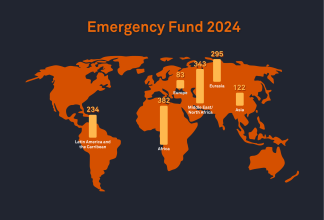“It was impossible to keep my head down”: Feminist anti-war resistance in Russia
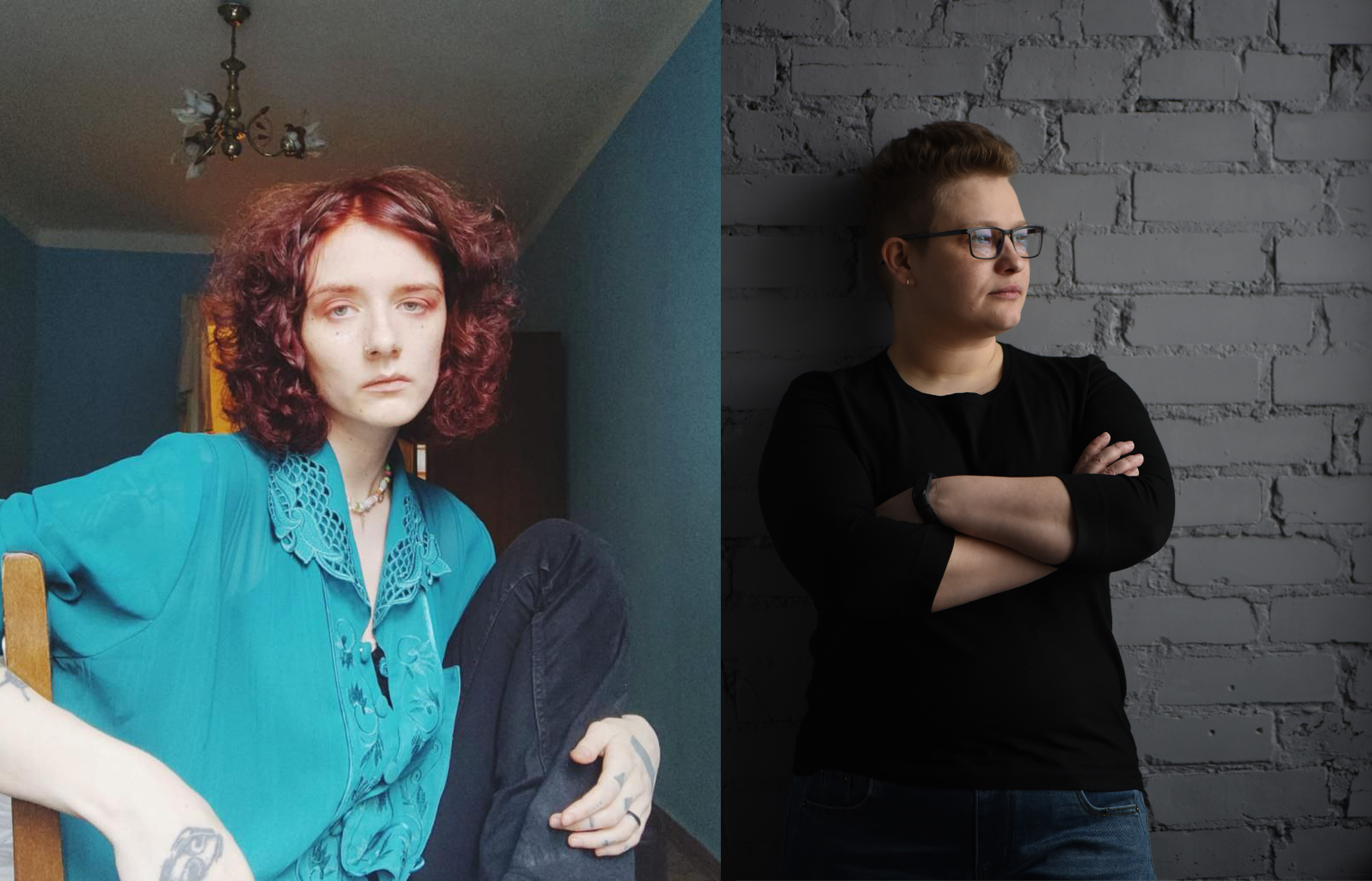
Russia’s president Putin recently announced a “partial mobilisation”, ordering to send at least 300,000 men to the war in Ukraine. This has led to a new wave of protests across the country, with over 1,300 detained by the police. The Feminist Anti-War Resistance (FAR) is one of the organisations opposing the war and the recent mobilisation. We spoke with two coordinators who left Russia and, unlike many other members, can speak openly and use their real names.
The Feminist Anti-War Resistance (FAR) is a movement formed by a group of feminist activists the day after Russia’s invasion of Ukraine. Sasha Starost is a Russian social activist, artist, musician, and translator. Liliya Vyzhivatova comes from the LGBTI+ movement and has worked with Russian non-profit projects helping victims of domestic violence.
Today, the movement has tens of informal branches around the world and inside Russia, hundreds of members and supporters, and is rapidly expanding. FAR is not only very vocal on social networks – with over 40,000 followers on social media platform Telegram – they provide a lot of direct support to anti-war resistance and organise the anti-war movement inside the country. FAR members offer free psychological support to activists, help find legal help to those who are fired or threatened by their employers in Russia for speaking up against the war and distribute a self-published underground anti-war newspaper in the Russian regions, among other things.
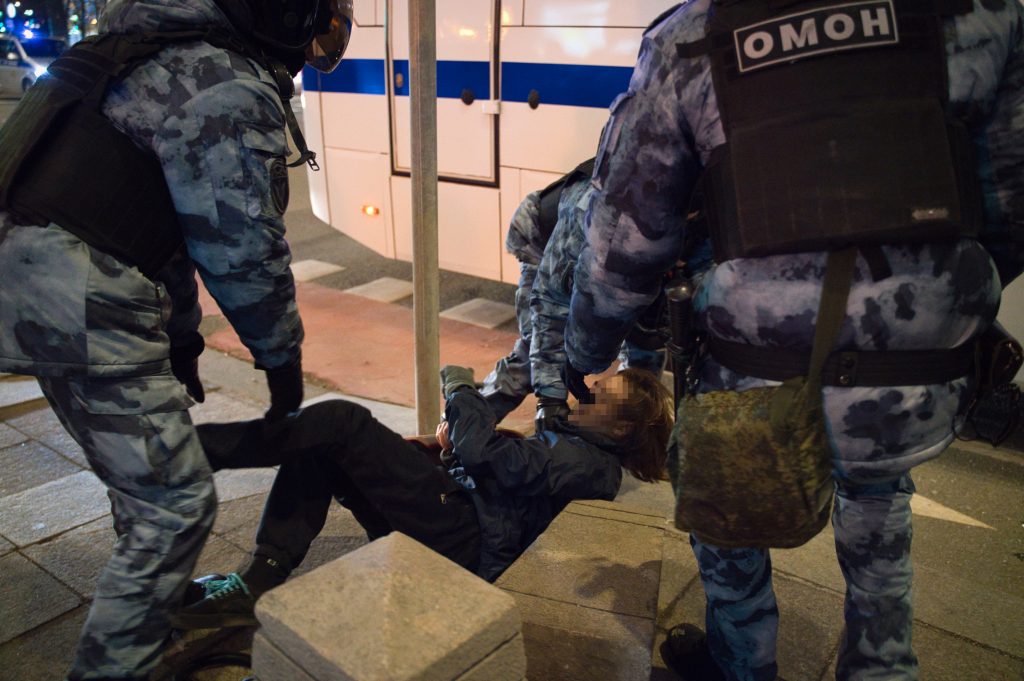
How did you start working with the Feminist Anti-war Resistance?
Sasha: After the invasion in February 2022, my colleague and I created a course named “Survival classes” focused on helping activists with psychological issues. FAR reached out to us and asked us to create a brochure on how to organise psychological support groups. We started by making this brochure, and then decided to create a whole psychological branch for activists. We put together a core team of six people, and we work with around 60 psychologists.
We are also writing and publishing brochures, for instance on how to deal with burnout and how to start support groups.
I think that one of the largest issues in activism today is that people continue working while living through hardships and pain, using their last ounces of strength. Their psychological state deteriorates. When a person in this labile state continues doing activism, he or she starts making mistakes, attracting attention or the law enforcement, and then quickly gets detained or imprisoned. The psychological branch of FAR is not only about support, it is also about helping people to stay free and continue their work – this is the goal of resistance, from my point of view.
Liliya: After the war started, I realised that it was impossible and unbearable to keep my head down. FAR was created the day after the war began. I joined a month later – I needed that time to overcome the shock and leave the country. I participated in the protests and was arrested twice. After that, my lawyer told me that the administrative case against me could be turned into a criminal one. I wrote to one of the creators of FAR and she offered me the position as a coordinator.
How was the Feminist Anti-war Resistance created?
Sasha: FAR started its work with protest actions and then evolved. There are a number of feminist activists who worked closely together prior to FAR and were well-coordinated. In February 2022, they created this organisation to coordinate protests, and published a manifesto in numerous languages, and many people signed and agreed with them.
Feminists as a group were the most prepared for what happened.
Liliya: Feminists as a group were the most prepared for what happened. Feminism in Russia does exist, and it existed in the country before 24 February. It had serious media resources – and there had been many initiatives, discussions, work that had been done. Until the war broke out, the main thing feminists were fighting for was criminalisation of domestic violence. In Russia, domestic violence was decriminalised and was made an administrative violation. The focus, of course, changed after the war.
Feminist voices in Russia are many and they are loud. Perhaps partially because feminists have been persecuted by the state. At the same time, feminists have not been perceived as a real political force by the state, so it has not had the time to break us down. The fact that we were not working as a uniform group and remained at the level of horizontal initiatives helped us survive the last years of repressions against independent media and oppositional organisations.
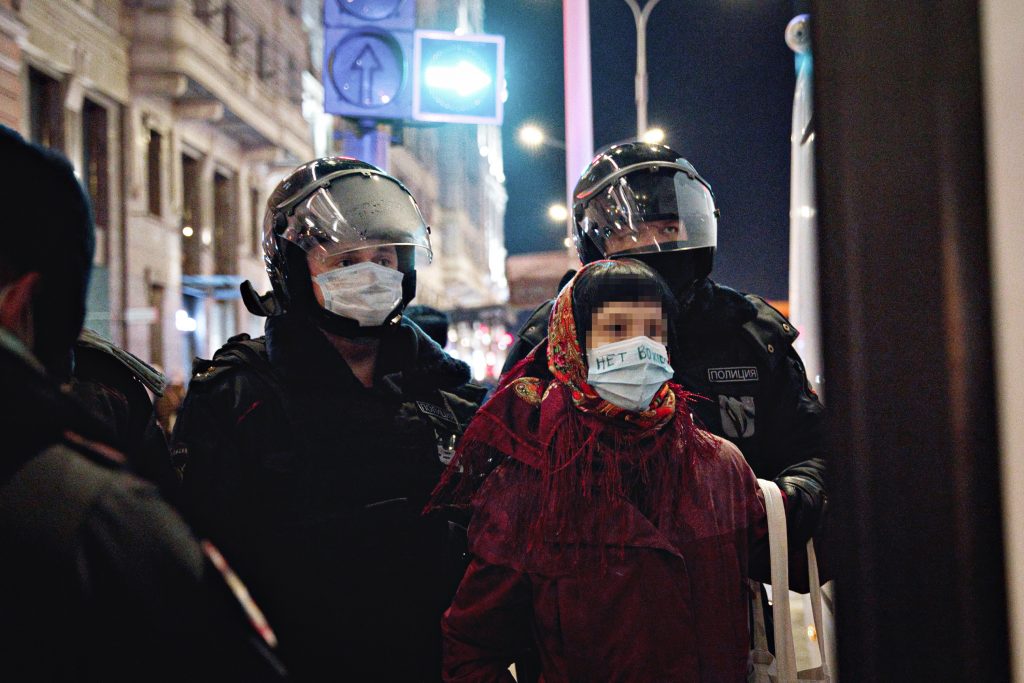
How does the Feminist Anti-war Resistance work as a whole?
Sasha: Our work is based on the principle of affinity groups, with people in different chats focusing on different areas of work; it helps in terms of safety and security. Simply speaking, we have the psychological support group, but there are also people who are focusing on helping relocated Ukrainians to Russia, for instance.
Liliya: FAR’s activity grew explosively: new groups appeared, the manifest was translated to many languages, we started developing groups in countries around the world – South Korea, USA, Czech Republic.
We are publishing a newspaper that is being distributed by activists inside the country despite all the dangers of doing so. We often get feedback that this newspaper becomes a point of contact and a start of the conversation between generations – younger people and their mothers or grandmothers. We try to design it in a way that mimics some of the small regional media. If it is a regional paper-based newspaper, people think it can be trusted. Distribution of this newspaper is dangerous, but we do take measures to protect our activists. For instance, we substitute the word “war” with the word “Tragedy,” with capital letter “T”. Our readers understand what we talk about, but if someone is caught with this newspaper, it would be harder to use the “fakes law” against them.
Another direction of our work relates to the anti-war foundation – we help people who face problems at their workplaces because of their anti-war position, we provide them with legal consultations for free.
The Feminist Anti-war Resistance is both an anti-war and a feminist movement. How are these two things connected?
Sasha: The value of non-violence is very important for feminists. Also, the situation in Russia has developed in such a way that feminism is perceived by the authorities as one of those “threats” that targets some sort of “traditional” values, hence feminists have been persecuted, especially recently. In this context, it is very logical that feminism is a big oppositional power that unites many young people. And because it is an oppositional force that is liberal, it naturally confronts this imperial idea of expansion and Putin’s policy that has brought us where we are now.
For many men and women who are now doing guerrilla work inside the country every sticker they put out there is a big step, a big act.
Liliya: For me, activism – including feminism – has always been connected to personal freedom. You feel very strong feelings when you are, for instance, standing in a solitary piquet for the very first time. In that moment you understand that you are a subject with your own opinion, that here you are, you exist, and it greatly transforms one’s personality.
For many men and women who are now doing guerrilla work inside the country every sticker they put out there is a big step, a big act. This war, although it sounds paradoxical and horrible, forms a whole group of people who are ready to actively defend their right to freedom, even in the circumstances of total un-freedom that we have now.
The more this anti-war campaign spreads, the more it helps activists understand that they are not alone. This sense that there are many of us helps people act, helps them be able to help. One day they are putting up stickers, the next day they will go volunteer somewhere or help collect humanitarian aid. This inspires them for the fight and for the action.
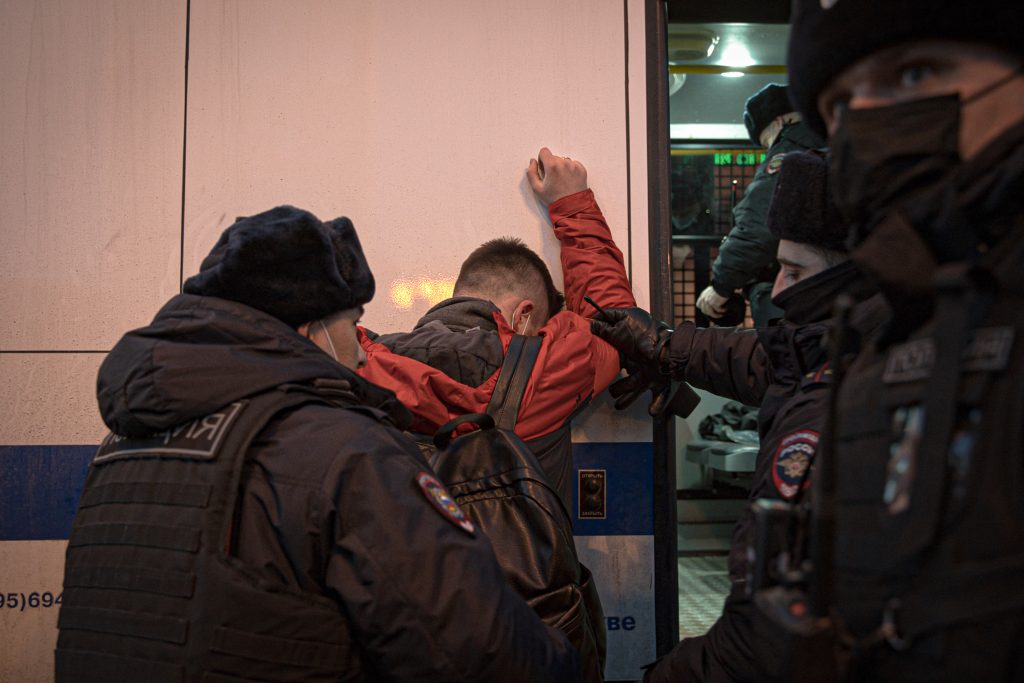
Do people join the Feminist Anti-war Resistance from inside Russia, or are the members only those who left the country? Is it possible for Russian activists to continue their work from the inside?
Sasha: I can not tell you percentage wise, but I know for sure that we have people working from Russia, and there are lots of them. We have a good working system that allows people to do it in relative safety.
Regarding continuing activist work from inside the country – public activists can not continue working publicly as they did before, that is true. But the work of closed and anonymous affinity groups, where each person does their own task but does not show their face continues to exist.
How can civil society in other countries support anti-war activists, what, in your opinion, is important to do and to know?
Sasha: I think it is important to recognise activists as having importance and needing lots of help today. Western organisations help many initiatives but are not necessarily helping those that are not very covered by the media. It is very important to understand that what activists in Russia do is hard work, although an unpaid one, and that people who have been doing activism have been filling the holes left by the government – in service, in politics, in human rights, doing all that on pure enthusiasm.
There is resistance, and there is a demand among people to express themselves. For many people even going out in the night and putting up an anti-war sticker is a big inner step – a step towards liberation.
Liliya: I would like to note that there are not so many people in Russia who support this war. There are many people who are poisoned, tricked, fooled by the propaganda, people whose basic values have been hijacked. I think it is a crime, what propaganda does to people. It is, of course, one of many in a long list of crimes, and it is not the main one, but it is one of them.
There is resistance, and there is a demand among people to express themselves. For many people even going out in the night and putting up an anti-war sticker is a big inner step – a step towards liberation.

